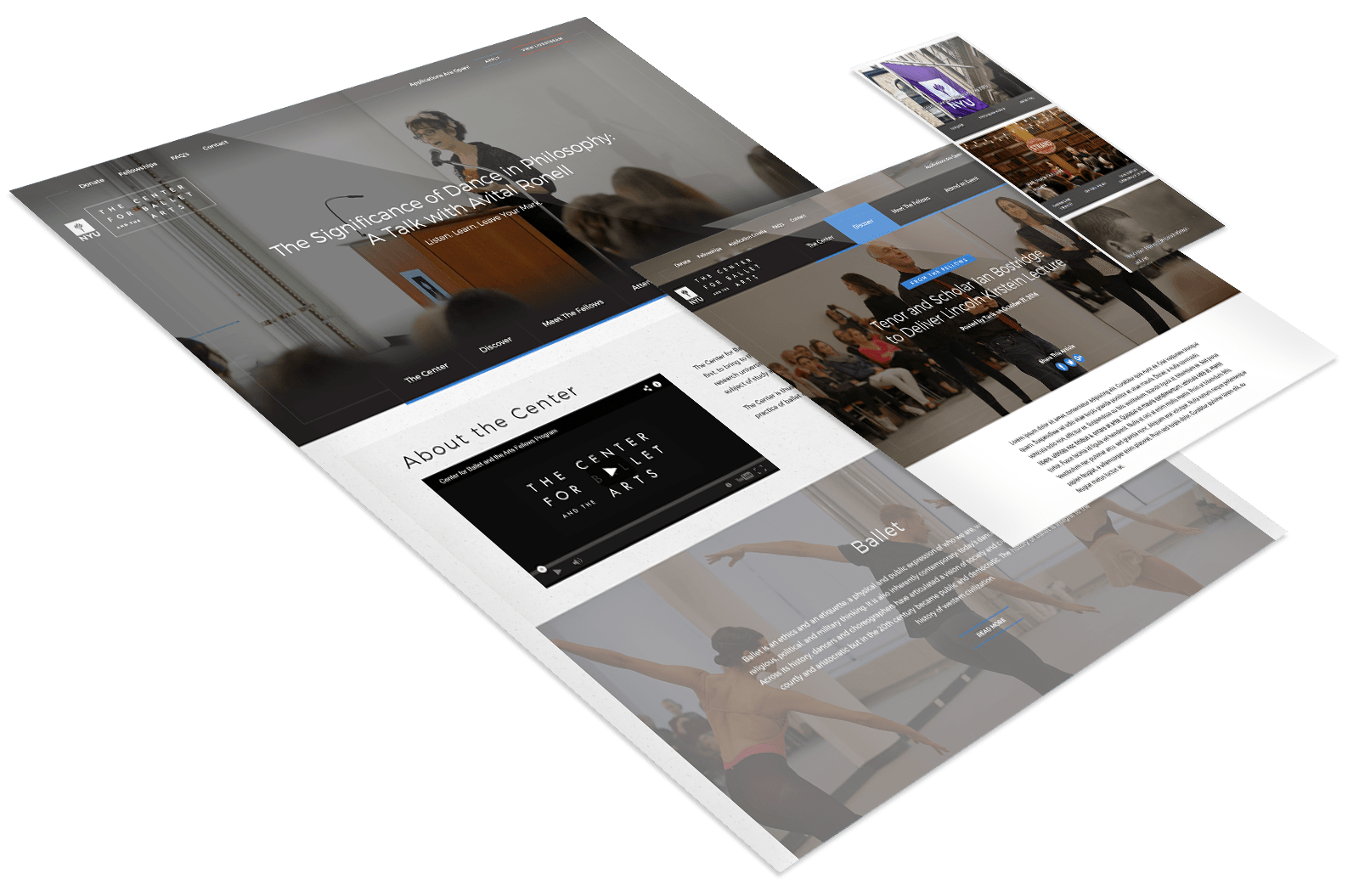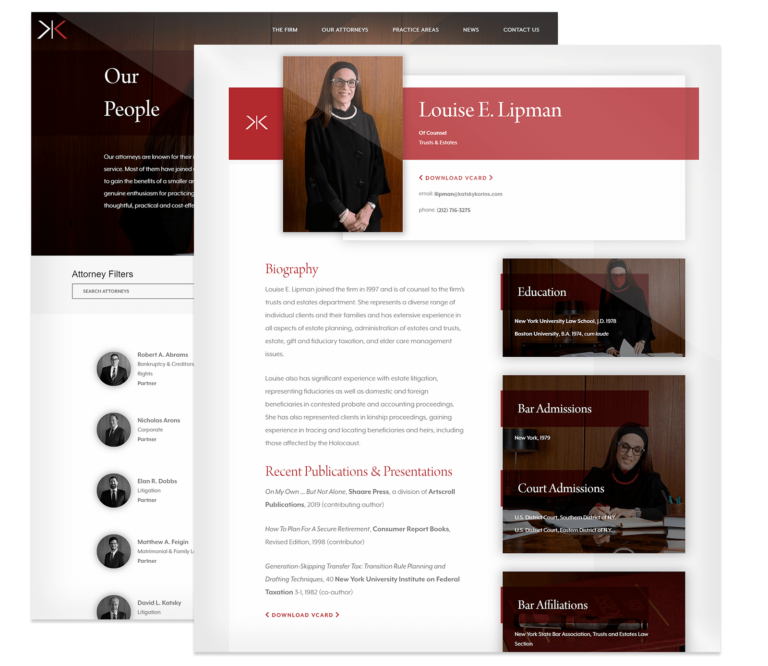The Right to See Your Site
When designing a site, it’s almost impossible to take every digital detail into account. Some might be minor, but others could have a major impact on your brand, like adhering to the Americans with Disabilities Act (ADA). The law basically ensures that the internet is accessible by all, which has led to ADA WCAG 2.1 AA.
The standard that ensures visually impaired and blind people are able to use your website.
Case Study
DESIGN BANG FOR YOUR BUCK

The Center for Ballet and the Arts at NYU:
Welcoming, Educating, Embracing: One Website, Two Audiences - A Case Study for the Arts
READ CASE STUDYFor those that don’t comply
For all sites, the ADA WCAG 2.1 AA standard isn’t something you can just skip. Everyone needs to be compliant, or you could face financial repercussions. Lawsuits against sites that have failed to comply have totaled thousands of dollars in fines, and even worse, damage to your brand image.
- Audience Accessible
While there is a cost involved with becoming ADA WCAG 2.1 AA compliant, this will protect you from lawsuits. Still, another positive aspect is you are now accessible to new targets—the visually impaired and blind. Consumers, who like any other customers, can become vocal brand loyalists. - The power of PR
Unfortunately, even today, most sites today are still not ADA WCAG 2.1 AA compliant. Sure, there’s a chance you won’t get caught, but those that do will be subject to costly lawsuits. Conversely, the positive side of offering this access is how your brand will be viewed by your audience. Showing them that you are willing to take that extra step to be accessible by all can be invaluable when it comes to goodwill PR.
- So, where do you begin
While there are lots of digital agencies out there, you just can’t assume they understand the nuances of what it takes to become ADA WCAG 2.1 AA compliant. e9digital has been committed to helping sites add this accessibility. We even partnered with a professional auditor CPACC (Certified Professional in Accessibility Core Competencies) that works with us to help ensure sites remain within these set guidelines.
OUR PROCESS
Step 1
Understanding the access
First off, we want our clients to understand not just the benefits of being ADA WCAG 2.1 AA compliant, but the costs and the process. From the initial audit, to the development and of course, double-checking to see if your site is up to code.
Step 2
Taking a first look
Once you understand what goes into this process, we need to first see what that will entail for your site. This means CPACC doing an initial audit. When estimating, size definitely is a factor. For instance, smaller sites could start at $1900 and would increase depending on the size.
Step 3
Crafting compliance
With our e-checklist in hand, our engineers can begin the remediation phase. Aside from the cost estimate, we will also let you know the timing for this development phase so you can plan out your marketing efforts to promote your ADA WCAG 2.1 AA compliance.
Step 4
Another look
Okay. Now that we're done with remediation, we want to ensure our work is right for release. So once again we involve CPACC to do an audit. While this won’t cost as much as the initial audit, it is still a vital stage to see if your ADA WCAG 2.1 AA platform is now accessible so you won’t be susceptible to a lawsuit.
Step 5
Keep up with the code
Sites are not stagnant. They evolve and update content. For this reason, we do monthly or quarterly audits to accommodate any changes to ensure you remain compliant.










